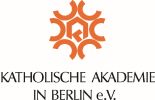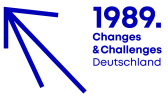The years 1919, 1939 and 1989 are true turning points in European history. The period after the First World War marked a fresh start that created an international order based on peace and helped previously oppressed nations to become emancipated. The Second World War that followed the Hitler-Stalin Pact brought an unprecedented extent of violence and destruction. The year 1989 stands for freedom revolutions in Central and Eastern Europe and the end of the division of the continent that existed since 1945.
In the debate, these historical watersheds and the memories associated with them will be discussed from various perspectives. Categories and phenomena that remained relevant throughout the 20th century will be addressed, such as particularism and universalism; antagonism and reconciliation; fears and emotions, as well as their social and political impact back then and today.
The panellists include:
Prof. Dan Diner, Hebrew University of Jerusalem / Leipzig University
Prof. Hans-Ulrich Thamer, Westfälische Wilhelms-Universität Münster
Prof. Jan Rydel, ENRS / Pedagogical University of Cracow
The event will be moderated by Gemma Pörzgen.
Venue: Catholic Academy in Berlin, Hannoversche Str. 5
Date and time: 14 October, at 7:00 pm (Monday)
Languages of the debate: German
The discussion accompanies the exhibition "After the Great War. A New Europe 1918-1923". The display will be on show in Berlin at at the Dorothea-Schlegel Square between 4 and 24 October 2019.
Please note that the discussion will be preceded by a special presentation of the exhibition at 17:00. The event will take place at the exhibition's location, at the Dorothea-Schlegel Square, and will include a guided tour given by the curators.
Learn more about the showing of the exhibition in Berlin


























